
The Culinary Trail: A Journey Through Traditional Dishes Across Egypt & UAE
The Middle East, a region of ancient history and rich culture, is home to two fascinating culinary landscapes: Egypt and the UAE. These countries are celebrated for their flavorful and deeply rooted food traditions.
This guide offers an in-depth look at iconic dishes that have shaped the palates of Egypt and the UAE, showcasing regional flavors, cooking techniques, and the cultural significance of each plate.
The Flavorful Landscape of Egypt’s Traditional Cuisine
Egyptian cuisine is a mix of influences from the Mediterranean, Middle East, and Africa. In this land, food is not merely sustenance but the embodiment of heritage and communal life. Let’s step into a few of the most popular dishes in Egyptian cuisine, each with its own history of a tale as rich as its taste.
Koshari: Egypt’s National Dish
Koshari is Egypt’s beloved comfort food with its hearty, carb-rich combination. And despite its humble look, it’s truly flavorsome.
- Ingredients: Rice, pasta, lentils, chickpeas, and crispy onions, topped with zesty tomato sauce, garlic vinegar, and optional hot sauce.
- History: Originated during British occupation from leftovers, representing the resilience and resourcefulness of Egyptians.
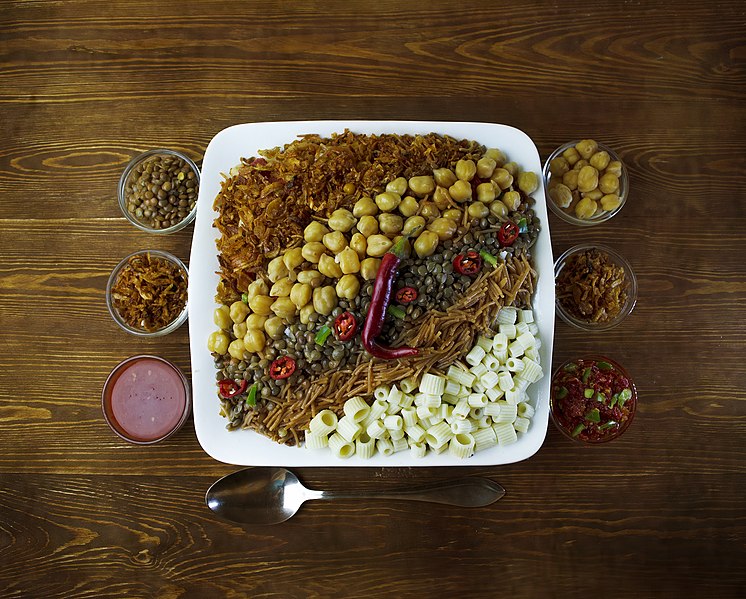
Ful Medames: Egypt’s Breakfast Essential
Ful Medames is one of the oldest and most iconic Egyptian dishes. You can find it everywhere, from street vendors to high-end restaurants. With its robust, earthy taste, ful provides protein and energy, making it the perfect start to the day.
- Ingredients: Slow-cooked fava beans, seasoned with lemon juice, oil, and cumin, served with bread. It also could be garnished with boiled eggs and fresh vegetables.
- History: Enjoyed by Egyptians from pharaohs to farmers, ful holds a special place in the Egyptian diet.
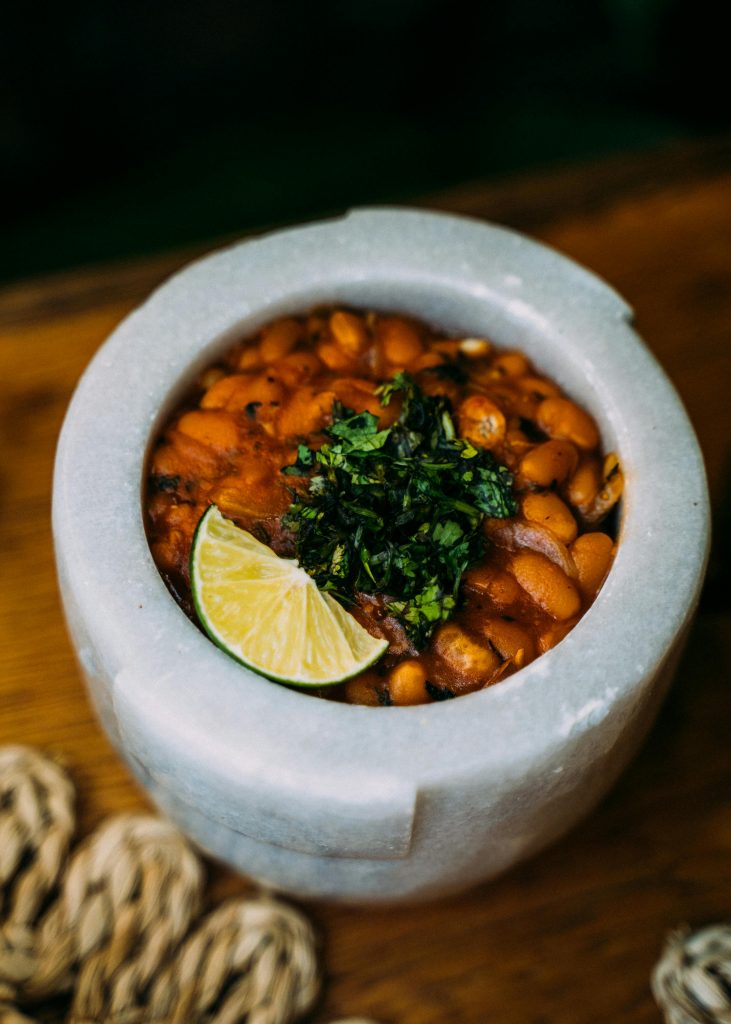
Molokhia: A Leafy, Nutritious Delight
Molokhia is a green, leafy vegetable used in a flavorful stew. It’s widely loved among Egyptians for its rich flavor.
- Ingredients: Molokhia plant, cooked with garlic and coriander and often served with chicken or rabbit and paired with rice or bread.
- History: An ancient Egyptian royal dish, ‘molokhia,’ translates to ‘royalty’ in Arabic. Believed to have originated during the Hyksos invasion of Egypt, molokhia was forced upon the Egyptians by the invaders, who mistakenly thought it to be poisonous. To their astonishment, the Egyptians not only survived but flourished on this nutritious plant.
- Occasions: Typically served during family gatherings or special occasions, symbolizing family unity.
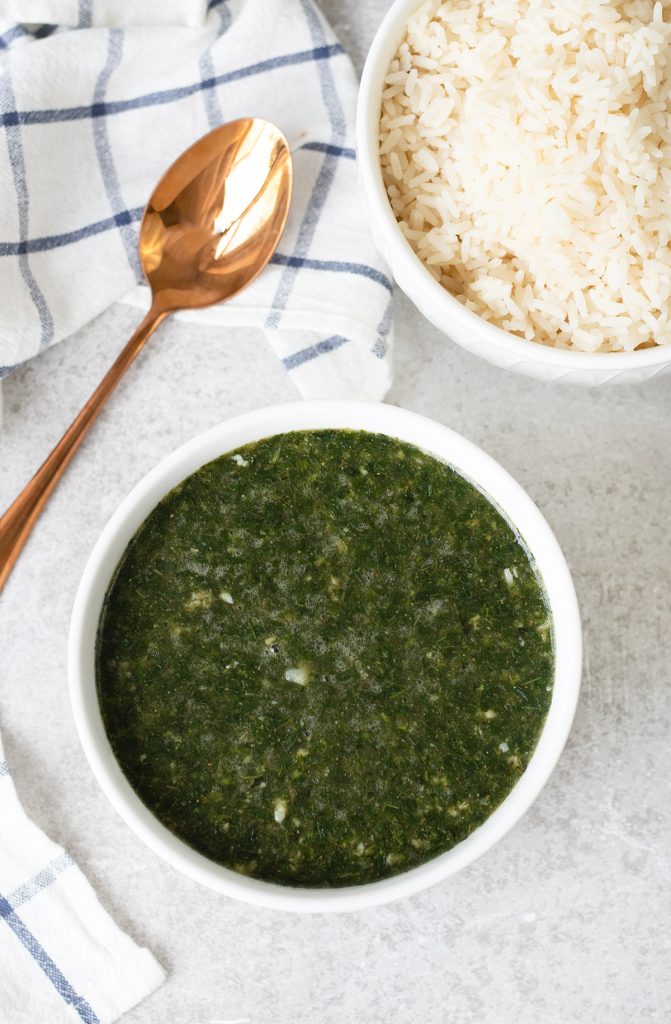
Mahshi: Stuffed Vegetables Bursting with Flavor
Mahshi is a dish of stuffed vegetables like zucchini, peppers, eggplants, and grape leaves. It’s loved throughout Egypt for its rich flavors and cultural significance. Also, it can be served as a main or side dish, depending on the occasion.
- Ingredients: Vegetables filled with a spiced rice mixture, often including herbs like dill, mint, and parsley.
- Occasions: Reserved for special gatherings and celebrations, symbolizing abundance and hospitality.
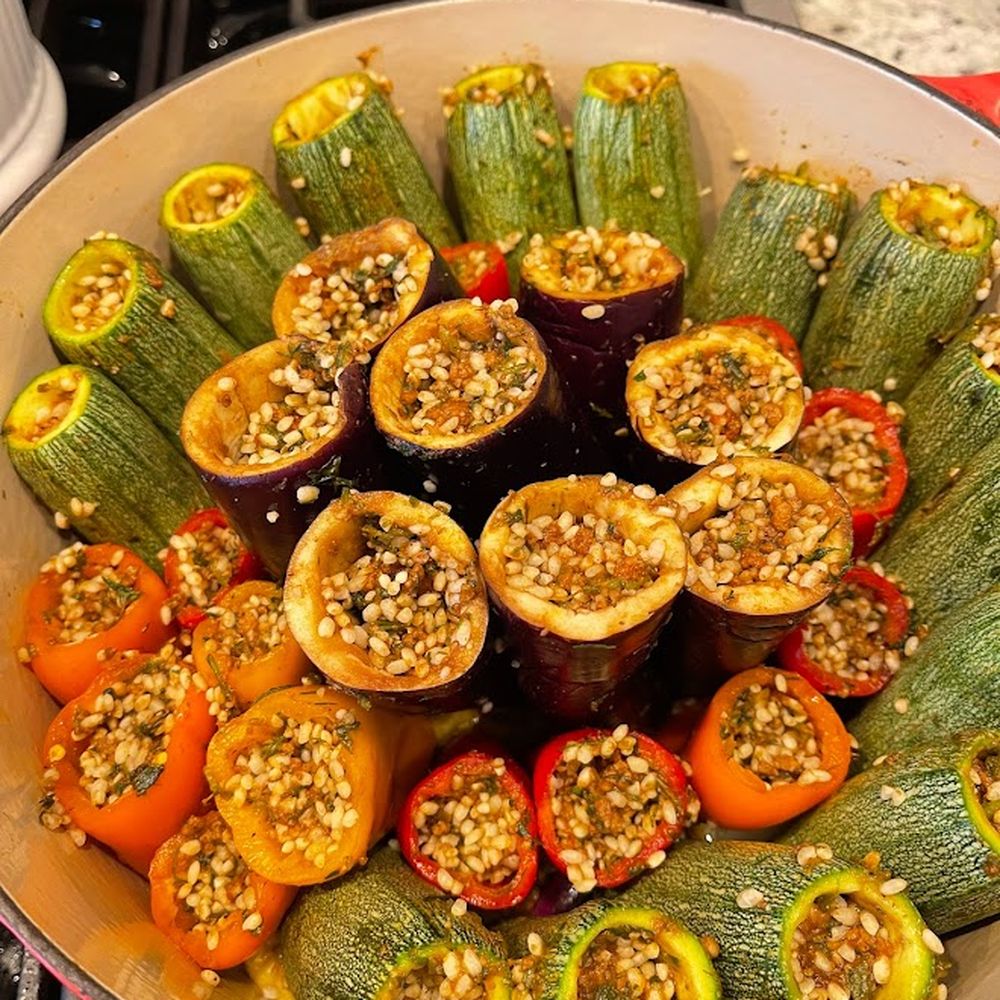
Sayadeya: The Ultimate Egyptian Fish Dish
Sayadeya is a seafood dish made with white fish, such as sea bass or mullet. It’s a must-try dish for seafood lovers for its rich and flavorful profile.
- Ingredients: Cooked with rice, spices, and onions and topped with a tomato-based sauce, creating a distinct, unique flavor.
- Popularity: Especially popular in coastal cities like Alexandria, where fishing is central to life.
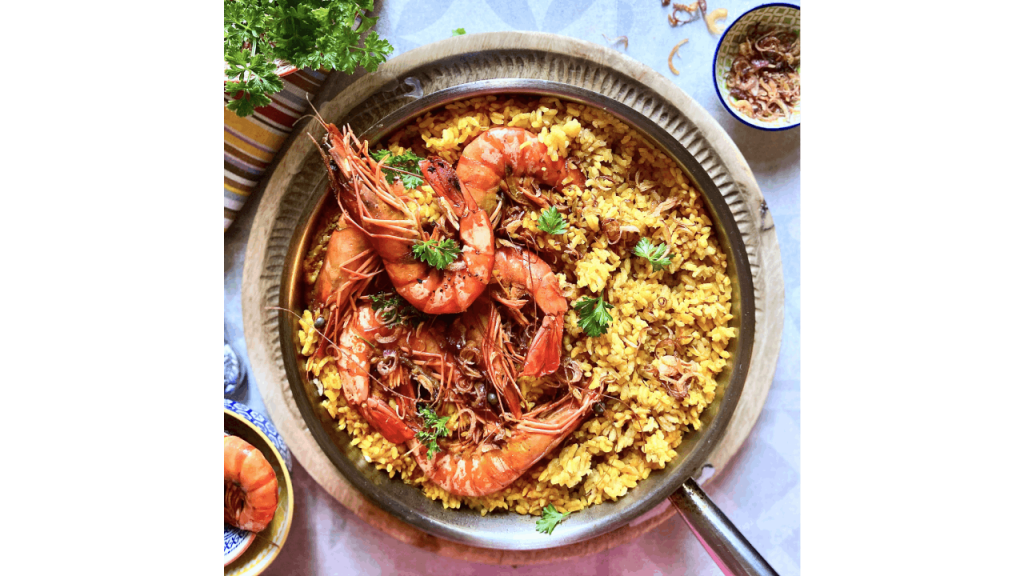
UAE’s Culinary Evolution: Where Tradition Meets Innovation
The UAE is known for its modernistic skyline and lavish lifestyle in Dubai and Abu Dhabi. Its cuisine, however, is very much Bedouin-influenced, with a combination of Indian, Persian, and African tastes. Traditional Emirati dishes are defined by the use of spices, rice, and meat, with dates and seafood playing prominent roles in the diet.
Al Harees: A Timeless Emirati Favorite
Al Harees is a slow-cooked porridge made from wheat and meat, usually lamb or chicken. Despite its simple ingredients, the long cooking time and careful seasoning result in rich flavor.
- Cooking Process: Cooked for hours until the meat blends into the wheat, creating a savory dish.
- Occasions: Commonly eaten during Ramadan, weddings, and special occasions, symbolizing togetherness and patience.
- Cultural Significance: Reflects the value of patience and unity in Emirati culture.

Machboos: The Emirati Rice Dish You Need to Try
Machboos is a fragrant rice dish with meat, typically chicken, lamb, or fish. It’s often served with yogurt or salad to balance the strong flavors.
- Ingredients: Cooked with cardamom, cinnamon, and cloves, creating a rich flavor.
- Occasions: Popular during family gatherings, reflecting its role in Emirati culinary traditions.
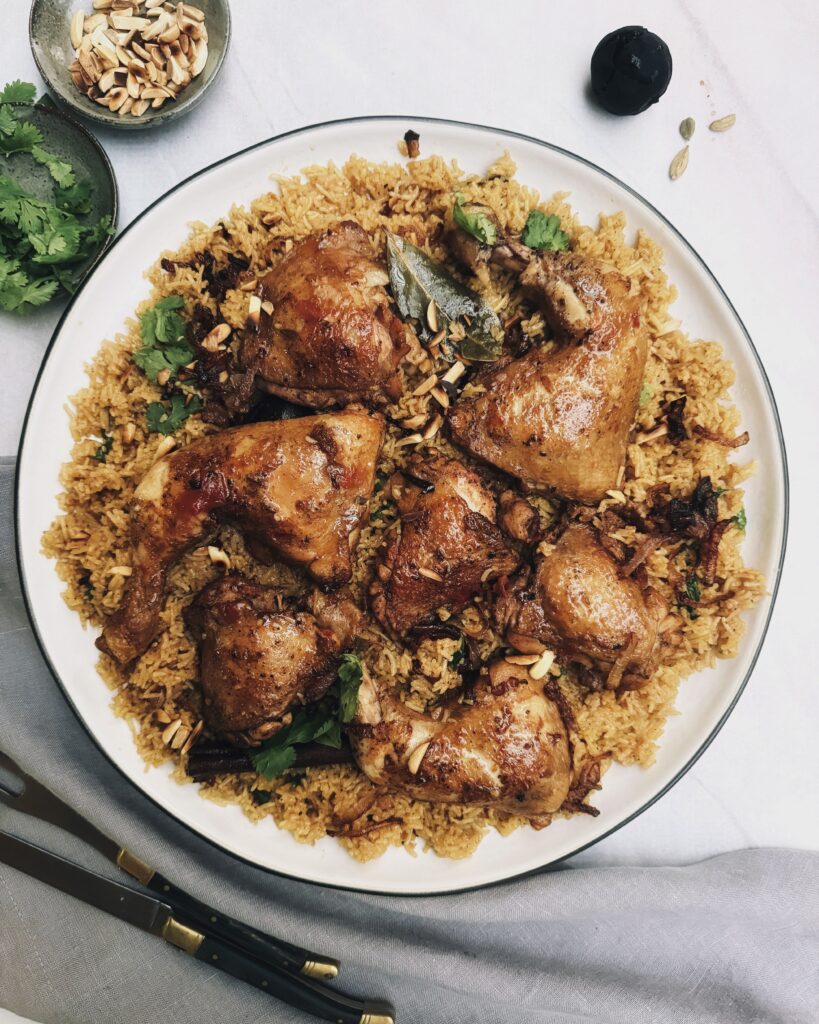
Luqaimat: Sweet, Sticky, and Irresistible
No Emirati meal is complete without a serving of Luqaimat, bite-sized fried dough balls soaked in date syrup or honey. Crispy on the outside and soft on the inside, these sweet treats are often served with Arabic coffee.
- Ingredients: Dough balls soaked in date syrup or honey.
- Occasions: Translates to “little bites,” they’re a symbol of hospitality and celebration during religious festivals like Eid.
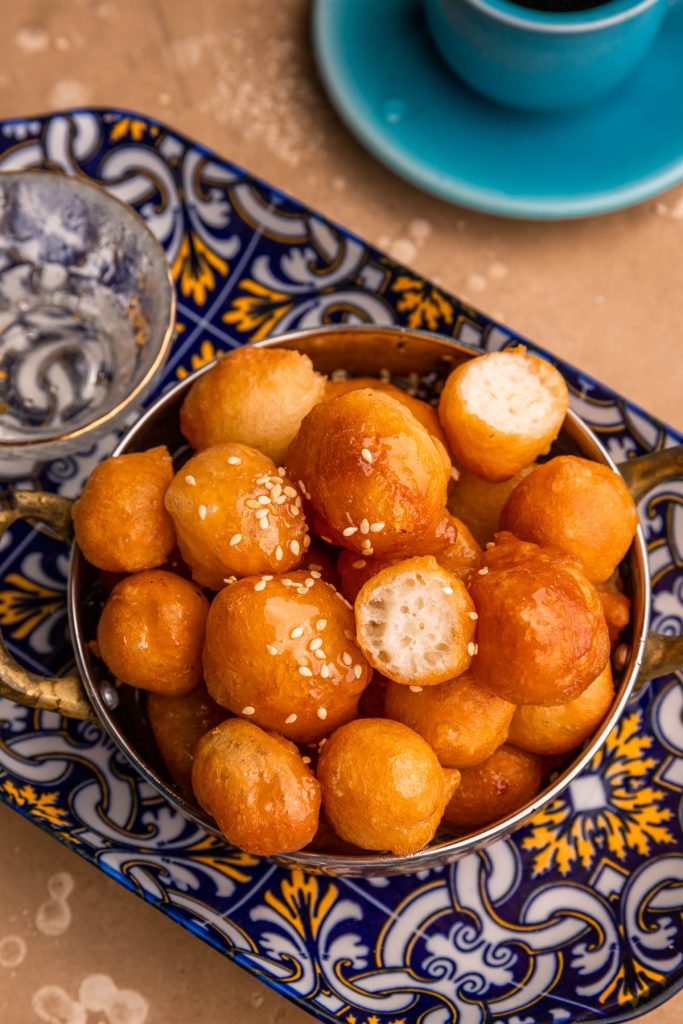
Balaleet: A Sweet and Savory Breakfast
Balaleet is a traditional Emirati breakfast dish with sweet and savory elements.
- Ingredients: Vermicelli noodles cooked with sugar, cardamom, saffron, and rose water, topped with an omelet.
- Occasions: A favorite during festive occasions like Eid, when families come together.
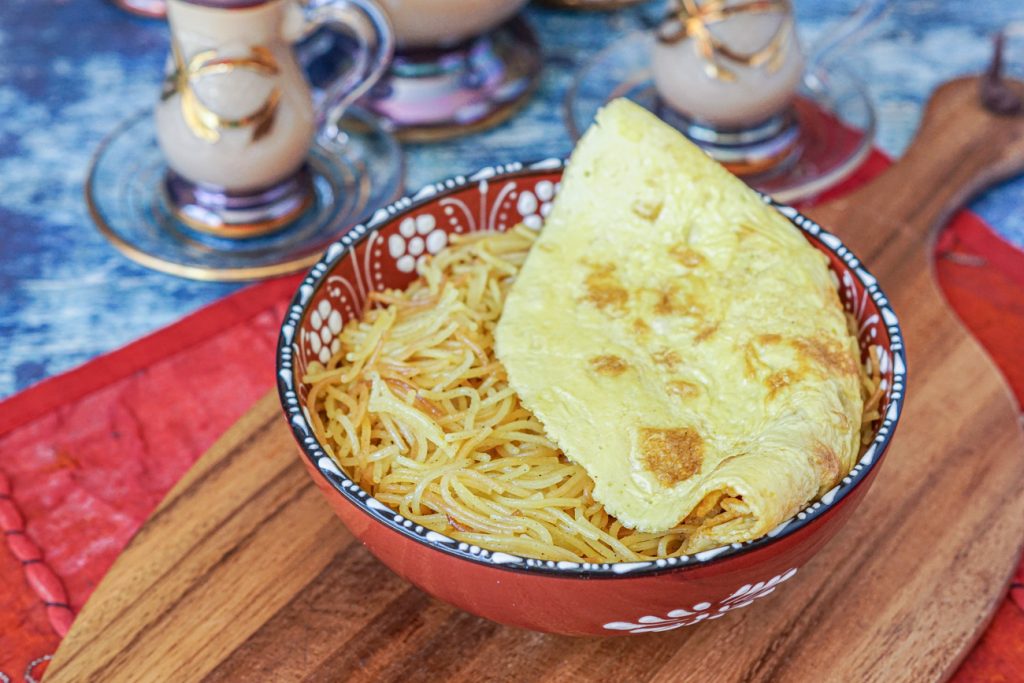
FAQs About Traditional Dishes in Egypt & UAE
Q. Which dish is considered the national dish of the UAE?
A. Al Harees is considered one of the UAE’s national dishes, especially during Ramadan.
Q. Are Egyptian and Emirati cuisines spicy?
A. Both cuisines use a variety of spices, but they are not overwhelmingly hot.
Q. Is Koshari vegetarian-friendly?
A. Yes, Koshari is a vegetarian dish that combines rice, pasta, lentils, and chickpeas, making it a favorite among vegetarians in Egypt.
Want try these delicious dishes firsthand? Book your next trip to UAE or Egypt with Galaxia and enjoy the culinary experience of a lifetime. Contact us now!